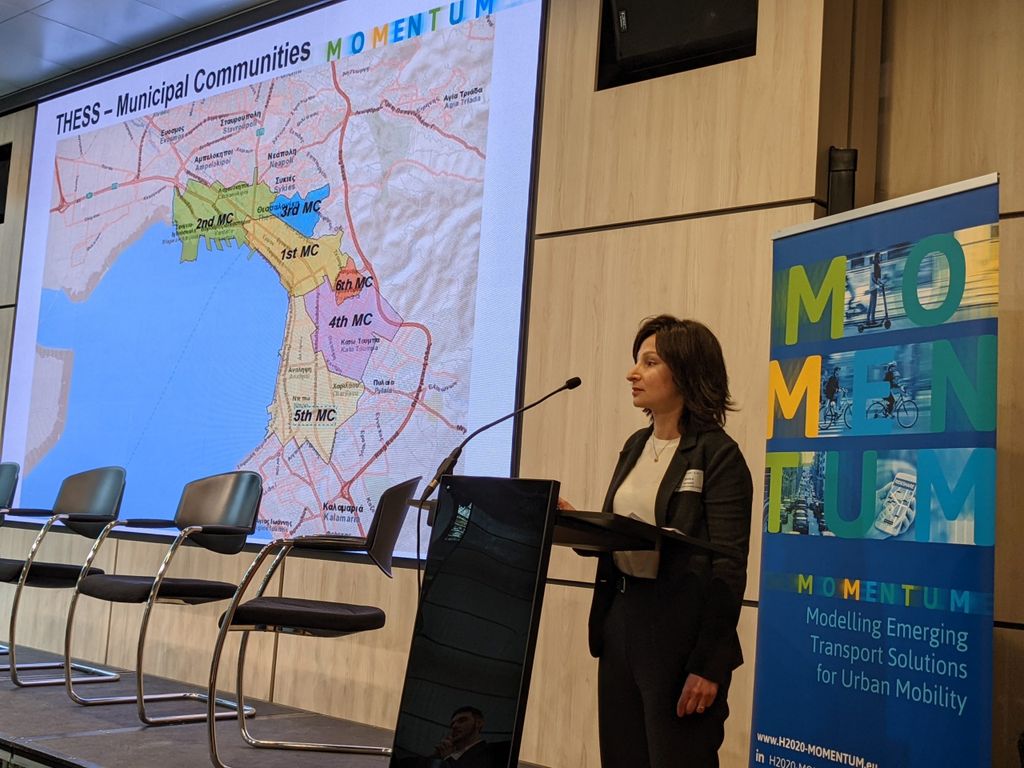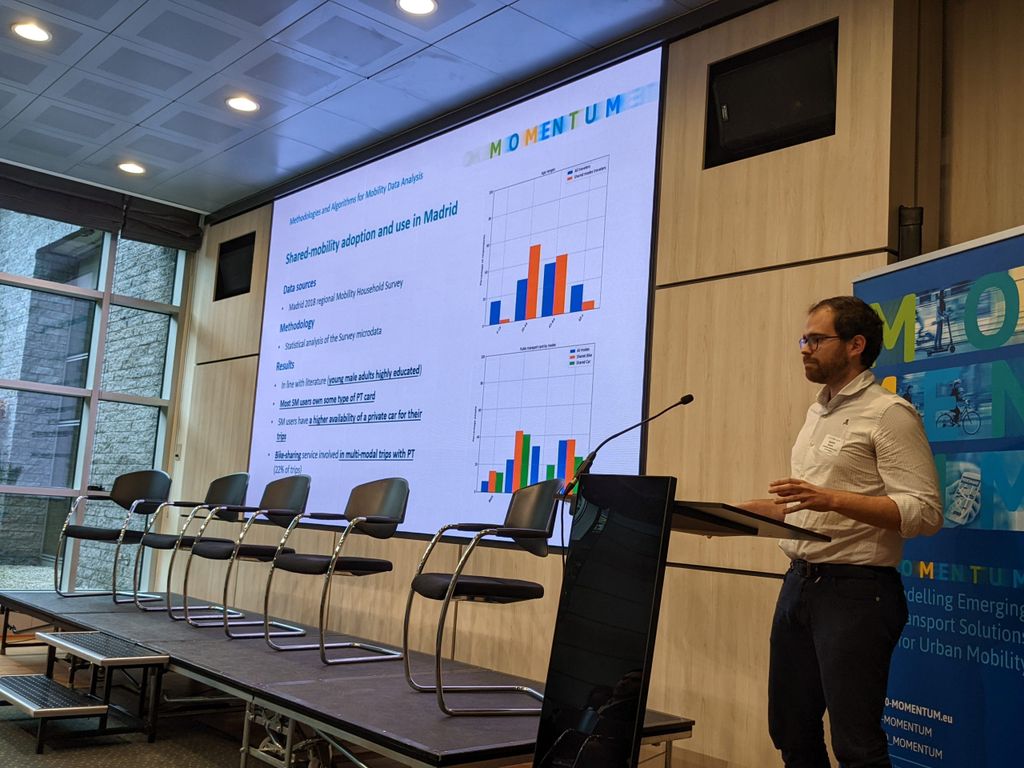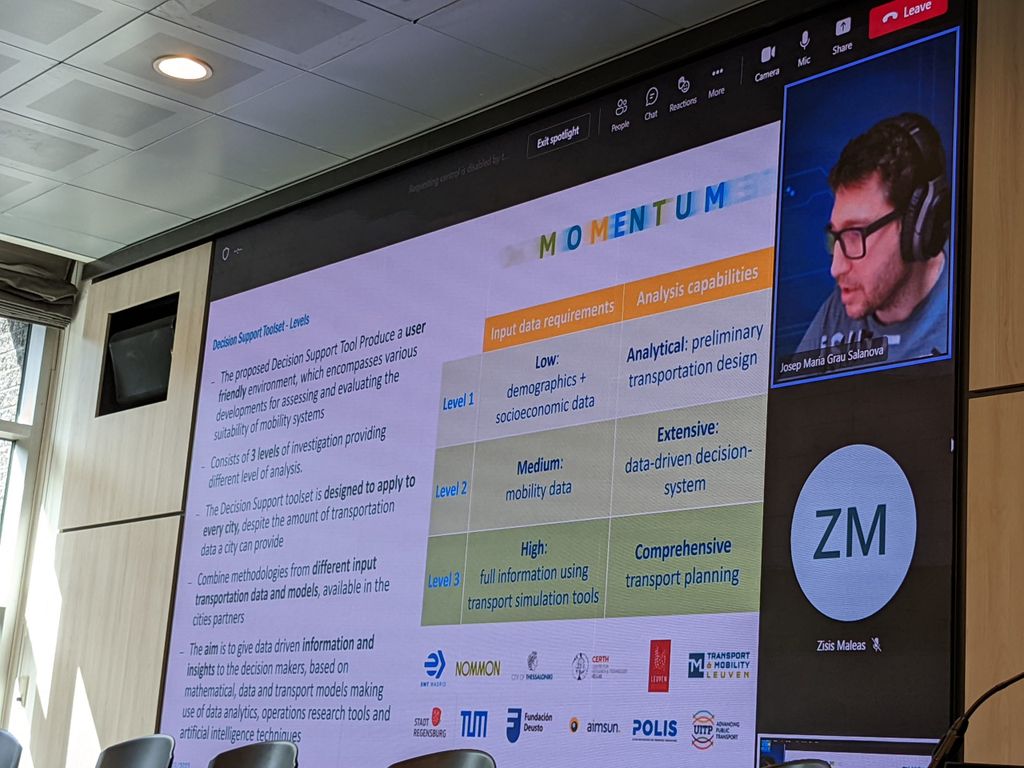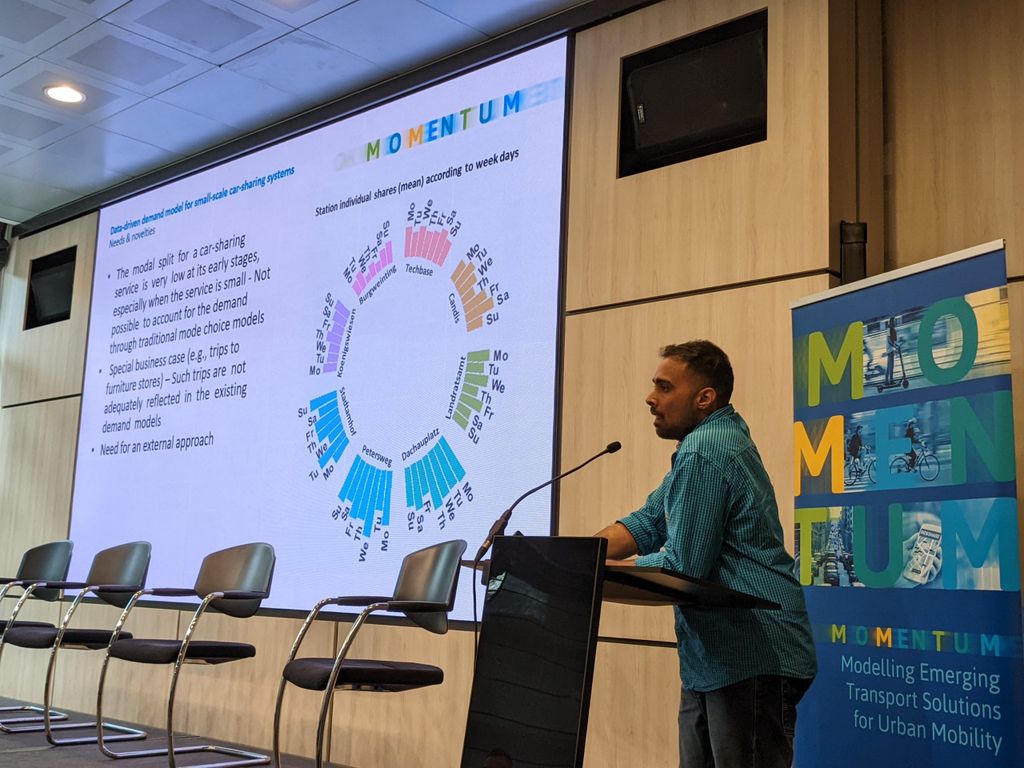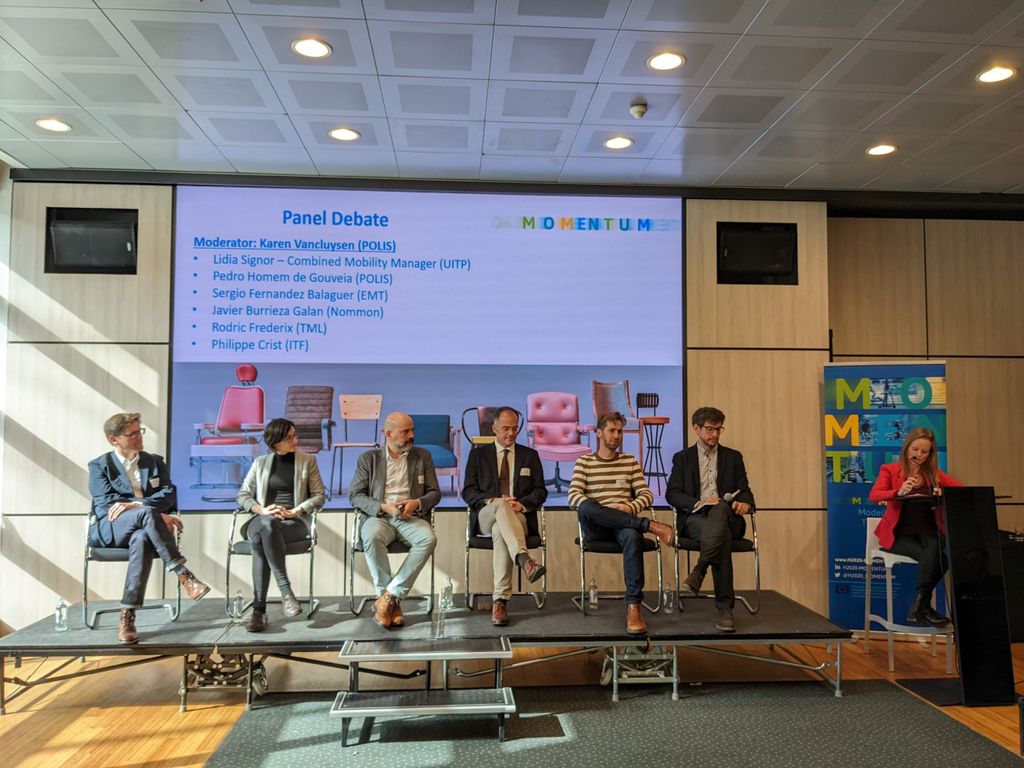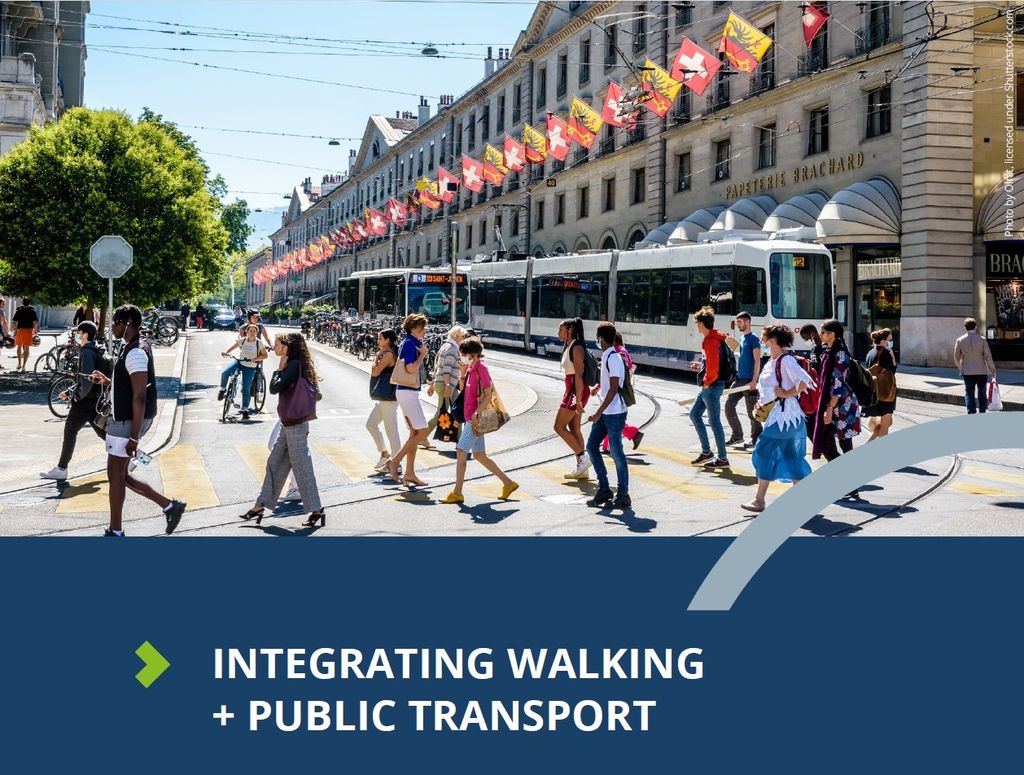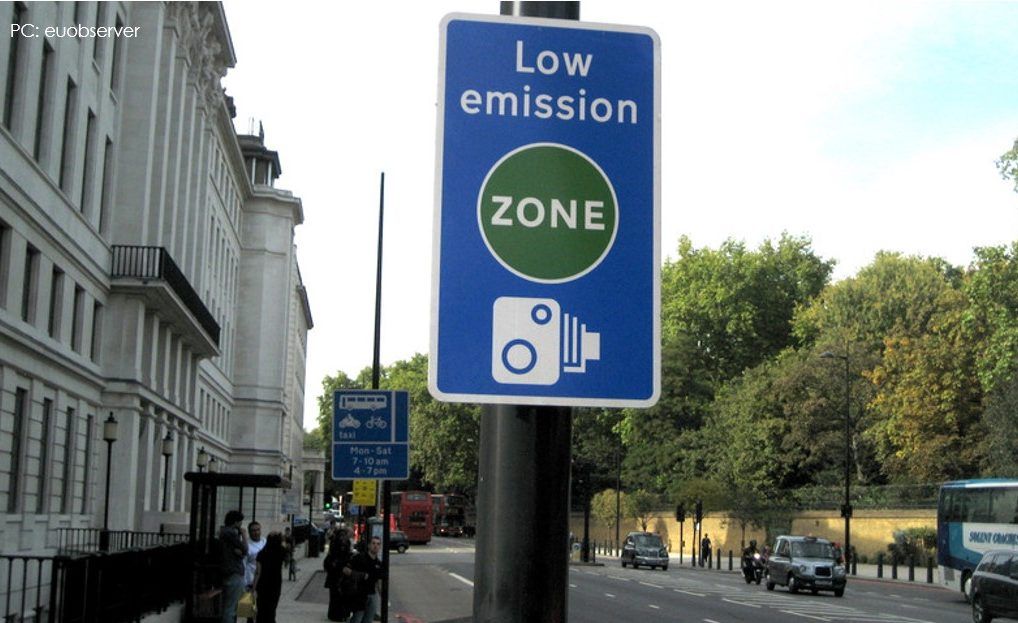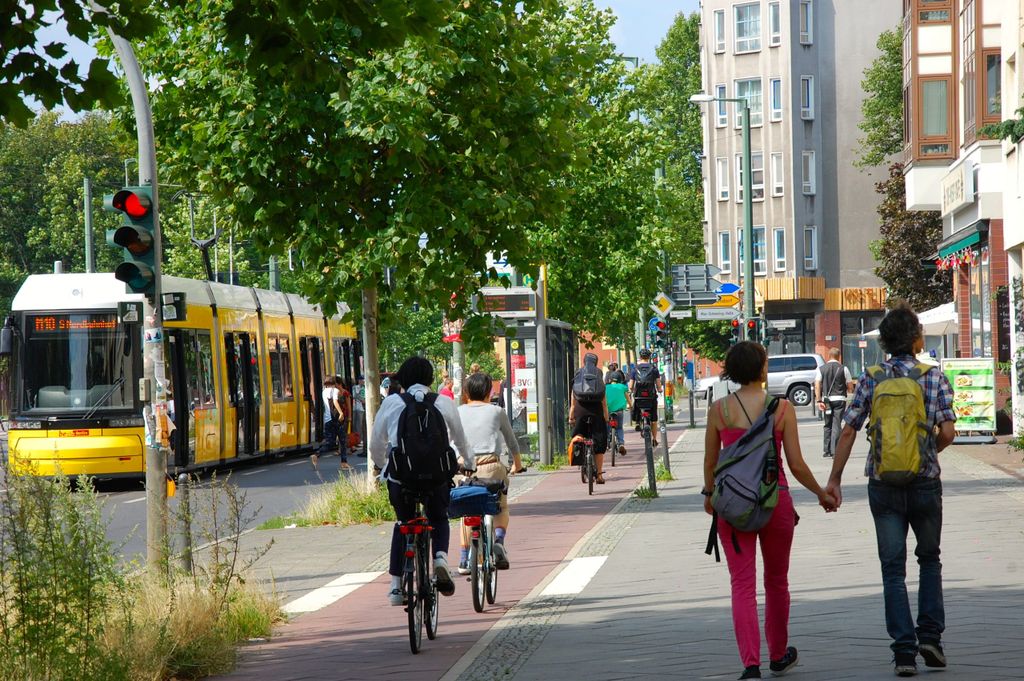
Tools to boost policies on emerging mobility services: Results from the MOMENTUM conference
MOMENTUM (Modelling emerging solutions for urban mobility)
Last week, UITP joined the MOMENTUM research project’s final event in Brussels, Belgium, alongside 60 other project partners and mobility stakeholders for a day of insights all around modelling and planning of emerging mobility solutions in urban areas.
A project that has been running for three years, MOMENTUM has helped planners, decision makers and stakeholders to discuss together possible emerging mobility solutions in their cities to complement traditional public transport. With technologies and emerging solutions bringing radical changes to urban mobility, the goal of MOMENTUM was to develop a consolidated set of data analysis methods, transport models and planning support tools to help cities design the right policy mix and exploit the full potential of shared mobility, Demand Responsive Transport (DRT), Connected Automated Vehicles (CAVs) and much more…
The main focus of the final event was around the local planning process for emerging mobility solutions in the European cities of Regensburg, Madrid, Thessaloniki and Leuven. In addition, the decision-support tool was presented with use cases for city authorities and transport planners.
Local city processes
Through the data analysis and transport modelling, existing simulation tools were enhanced to develop interactive tools for mobility monitoring and management. These tools and techniques were then demonstrated and evaluated through four case studies in the four MOMENTUM cities.
Regensburg, Germany, is a vibrant city already active in exploring novel mobility services. Air quality was a concern and so the city was looking to develop a reliable model for deriving scenario outputs and guiding evidence-driven policy input by integrating new services into the existing mobility model.
EMT, Madrid’s public transport operator, wanted to position itself as a provider of sustainable mobility services. With policy priorities to improve air quality by reducing congestion and improve accessibility in the urban periphery, EMT sought to gain a better understanding of the impact of emerging services on modal shift from private car trips as well as to expand their transport offer, with the current expansion of their bike-sharing scheme.
Thessaloniki, Greece, hopes to improve the planning and decision-making process for resilient and sustainable mobility schemes while shifting the modal share towards more sustainable mobility, with the adoption of bike-sharing, DRT and shared taxis.
A popular Belgian student city, Leuven is developing a new mobility plan, setting the policy framework for the coming decade and moving away from a car-centric approach to active, shared and public modes. Little experience with advanced modelling and data-driven policy making, Leuven’s municipality and stakeholders recognised the value of MOMENTUM’s tools. The municipality plans to invest further in this approach, as the need for planning tools will grow while upscaling efforts and developing shared mobility options, and tools will improve as the database grows.
The value of decision-making support tools
While there is a need to complement public transport, complementarity is not simple as cities may assume from the beginning of a project. Models can help policy and decision makers see complementarity differently, such as the case with Madrid where bike-sharing schemes show efficient integration with metro, but less so with buses.
However, models can be abstract and the challenge is that expectations are very high from the users of such models. Unforeseen changes can happen and COVID-19 is a prime example of that. While cities may expect integrated models that can do anything, it is key to understand that the tool(s) support help decision making and evaluate certain options and situations.
Complementarity with public transport isn’t just about using different modes to get from A to B. Actually, the challenge is to consider a user’s lifestyle and his or her household’s mobility needs for the week, month and the whole year to really provide them with reliable alternatives to the private car. MOMENTUM’s tools to support evidence-based decision making is a step towards designing the right policy mix!
The open-source and accessible tools presented were:
- Enhancement of transport simulation frameworks with models of emerging mobility solutions
- Interactive decision support toolkit
- Policy assessment methodology
So, what were the key messages from the project?
The results of the case studies were used to derive conclusions on how to maximise the benefits of new mobility systems and avoid potentially negative effects. Some of the practical recommendations for the effective use of the project’s results were:
- There is no one-size-fits-all solution. With MOMENTUM tools, public officials do not have to start from scratch but can use and adjust the tools to the specifications to get more tailored results and decision making.
- Embed transport modelling into a wider transport strategy for the metropolitan areas.
- Use Momentum tools as a basis for discussion between public officials and other stakeholders, for analyses, planning scenarios and measures as well as tendering processes.
- Acquire funding and invest in experts, either externally or in-house.
- Good data is needed to make good decisions. Cooperation with mobility operators for data use is crucial as well as data-anonymisation techniques and transparent data management approaches to tackle privacy issues as well as commercial sensitivities.
- A wide user base for emerging mobility services allows better modelling results.
The project may have come to an end but there is more to come…
The decision support tools are accessible via the MOMENTUM website
Plus, keep an eye out for the upcoming guide to integrating MOMENTUM’s outcomes, tools and methodologies in Sutainabable Urban Mobility Plans (SUMPs). What’s more, policies for new mobility services will be outlined in a useful Executive Summary to share with transport authroties and policy makers.
our members

